Scientific Team
Scientific Director
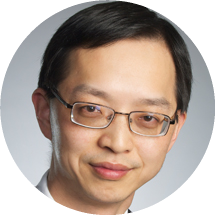
Dr. Tony (Zhijun) Qiu
Dr. Tony (Zhijun) Qiu is the Scientific Director for the Autonomous Systems Initiative (ASI). Dr. Qiu is an Associate Professor in the Department of Civil and Environmental Engineering at the University of Alberta (U of A) and holds both the Canada Research Chair in Cooperative Transportation Systems and the NSERC Industrial Research Chair in Intelligent Transportation Systems. Since joining the U of A in 2009, Dr. Qiu founded the Intelligent Transportation Systems (ITS) research lab, now called the Centre for Smart Transportation (CST). Dr. Qiu received his Ph.D. from the University of Wisconsin-Madison in 2007 and his BSc. and MSc. from Tsinghua University of China in 2001 and 2003, respectively. From 2008-2009, he worked as a postdoctoral researcher in the California PATH Program at the University of California, Berkeley. Passionate about advancing intelligent transportation, Dr. Qiu has conducted fundamental and applied research in the critical areas of traffic flow theory, traffic operation and intelligent transportation systems. His research focuses on developing analytical models to evaluate and optimize large and complex ITS networks, and in developing support tools for the agencies that manage these systems. In addition to having completed over 41 research projects totaling more than $6,000,000 in funding, he has published over 160 journal and conference papers, several of which have been chosen for best paper awards. He has also received the 2013 Minister’s Award of Excellence in Process Innovation, the 2015 Faculty of Engineering Research Award from the University of Alberta, an award at the 2016 ITS Canada Annual Conference for research collaboration with the City of Edmonton and was recently named the Young ITS Canada Leadership award for contributions to the advancement of Intelligent Transportation Systems (June 2019).
Project Leads
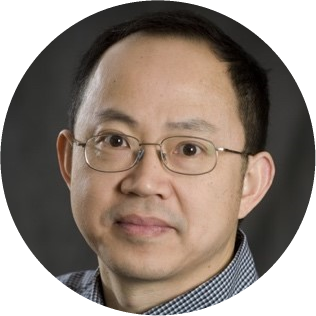
Tongwen Chen
Dr. Tongwen Chen leads the project entitled "Control and Monitoring Tools for Complex and Networked Autonomous Systems". Dr. Chen is currently a Professor and Tier 1 Canada Research Chair in Intelligent Monitoring and Control at the University of Alberta, Canada. He received a BEng degree in Automation and Instrumentation from Tsinghua University (Beijing) in 1984, and MASc and PhD degrees in Electrical Engineering from the University of Toronto in 1988 and 1991, respectively. His research interests include computer and network based control systems, event triggered control, process safety and alarm systems, and their applications to the process and power industries. He is a Fellow of IEEE, IFAC, as well as the Canadian Academy of Engineering.
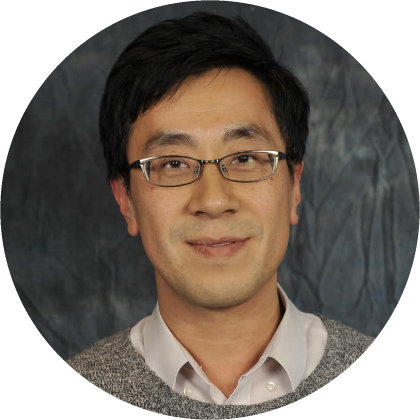
Henry Leung
Dr. Henry Leung leads the project entitled "Intelligent Technology Stack for Autonomous Systems". Dr. Leung is a professor in the Department of Electrical and Computer Engineering at the University of Calgary. Before joining U of C, he was with the Department of National Defence (DND) of Canada as a defence scientist. His main duty there was to conduct research and development of automated surveillance systems, which can perform detection, tracking, identification and data fusion automatically as a decision aid for military operators. His current research interests include big data analytics, chaos and nonlinear dynamics, information fusion, machine learning, signal and image processing, robotics and internet of things. He has published extensively on these topics, with over 270 journal papers and 250 refereed conference papers. Dr. Leung has been the associate editor of various journals such as the IEEE Circuits and Systems Magazine, International Journal on Information Fusion, IEEE Trans. Aerospace and Electronic Systems, IEEE Signal Processing Letters, IEEE Trans. Circuits and Systems. He has also served as guest editor for the special issue “Intelligent Transportation Systems” for the International Journal on Information Fusion and “Cognitive Sensor Networks” for the IEEE Sensor Journal. He is the topic editor on “Robotic Sensors” of the International Journal of Advanced Robotic Systems. He is the editor of the Springer book series on “Information Fusion and Data Science”. He is a Fellow of IEEE and SPIE.
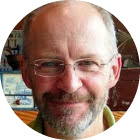
Michael Buro
Dr. Michael Buro co-leads (together with Dr. Tony Qiu) the project entitled “Automated Transportation System with Enhanced Vehicle Intelligence and Infastructure Digitization”. Dr. Buro is a professor in the computing science department at the University of Alberta in Edmonton, Canada. He received his PhD in 1994 for his work on Logistello - an Othello program that later defeated the reigning human World champion 6-0. His current research interests include heuristic search, machine learning, abstraction, state inference, and agent modeling applied to games. In these areas Michael and his students have made numerous contributions, ranging from developing fast geometric pathfinding algorithms, over hierarchical search methods, to creating the World's best program for Skat - a popular 3-player card game.
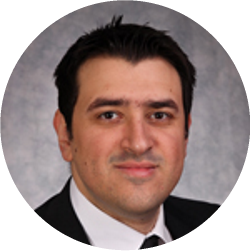
Karim El-Basyouny
Dr. Karim El-Basyouny (together with Dr. Bob Koch) leads the project entitled "Autonomous Systems for Supporting Infrastructure Resilience and Response to Disasters". Dr. El-Basyouny is an Associate Professor and inaugural City of Edmonton’s Research Chair in Urban Traffic Safety at the University of Alberta (UofA). He is a co-founder and steering committee member for the Centre of Smart Transportation in the Department of Civil and Environmental Engineering. He joined the UofA in July 2011 after completing his MSc and PhD in Transportation Engineering from the University of British Columbia. His research program focuses on advanced road safety management. Through the integration of statistical inference, complex computing techniques, and machine learning, he is able to extract information from huge datasets to address safety trends and patterns, estimate collision risk, and make evidence-based safety decisions. This includes a comprehensive body of work on developing integrated speed management strategies and infrastructure digitization for Connected and Automated Vehicles (CAVs) technologies. He is an active member of multiple (inter)national safety committees and serves on the editorial boards of several prominent journals. He chaired the 2011 International Urban Traffic Safety Conference and 2016 Transportation Innovation Conference. Over the past decade, Dr. El-Basyouny’s research has been supported by all levels of the Canadian industry and government (municipal, regional, provincial, and federal). He has published 126 peer-reviewed publications and was invited to present at 40 workshops, seminars, and panels, both locally and internationally. Dr. El-Basyouny has won several research awards throughout his career, with his most recent being the 2020 UofA’s Faculty of Engineering Mid-career Research Award and the 2020 Canadian ITS R&D/Innovation Award.
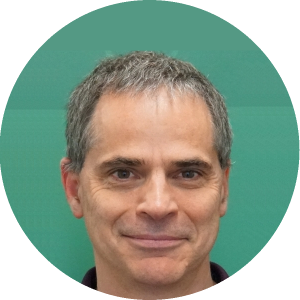
Bob Koch
Dr. Bob Koch leads the project entitled "Autonomous Road Vehicles Systems for Improving the Emissions Footprint of Urban Passenger Transportation. Dr. Koch received his B.S. degree in mechanical engineering from the University of Alberta, Edmonton, Canada in 1985, and his M.S. and Ph.D. degrees from Stanford University, Palo Alto, CA, in 1986 and 1991, respectively. From 1991 to 1992 and from 1994 to 2001 he worked at Daimler-Benz Daimler-Chrysler in Stuttgart Germany in advanced internal combustion engines. During 1992 to 1994 he worked for General Motors. In 2001, he joined the Mechanical Engineering Department of the University of Alberta, Edmonton Canada, where he is a Professor. His research interests include combustion engines, sensors for emission measurement during driving, advanced powertrains and control of fluid systems. He is currently an Associate Editor for the Mechatronics Journal (Elsevier).
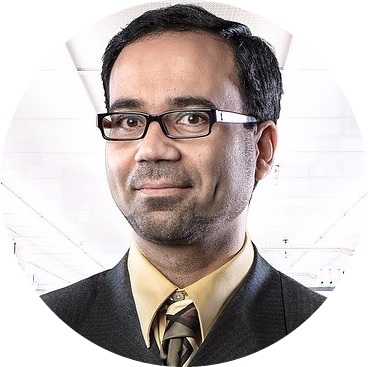
Mahdi Tavakoli
Dr. Mahdi Tavakoli leads the project entitled "Autonomous and Semiautonomous Systems for Healthcare Delivery. Dr. Tavakoli is a Professor in the Department of Electrical and Computer Engineering, University of Alberta, Canada. He received his BSc and MSc degrees in Electrical Engineering from Ferdowsi University and K.N. Toosi University, Iran, in 1996 and 1999, respectively. He received his PhD degree in Electrical and Computer Engineering from the University of Western Ontario, Canada, in 2005. In 2006, he was a post-doctoral researcher at Canadian Surgical Technologies and Advanced Robotics (CSTAR), Canada. In 2007-2008, he was an NSERC Post-Doctoral Fellow at Harvard University, USA. Dr. Tavakoli’s research interests broadly involve the areas of robotics and systems control. Specifically, his research focuses on haptics and teleoperation control, medical robotics, and image-guided surgery. Dr. Tavakoli is the lead author of Haptics for Teleoperated Surgical Robotic Systems (World Scientific, 2008). He is a Senior Member of IEEE and an Associate Editor for IEEE/ASME Transactions on Mechatronics, Journal of Medical Robotics Research, Control Engineering Practice, and Mechatronics

André McDonald
Dr. André McDonald leads the project entitled "Autonomous Systems for Industrial Communities". Dr. McDonald is a Professor and the Associate Chair (Research) in the Department of Mechanical Engineering at the University of Alberta. He has more than fifteen years of experience in the fabrication, development, and performance assessment of thermal- and cold-sprayed coatings fabricated with fixed robots. His current research involves the development of flame-sprayed multi-functional coatings that provide wear and erosion resistance and heating and structural health monitoring to a variety of industry structures. He has received several awards including Fellow of The Institute of Materials, Minerals and Mining, Fellow of ASM, the President’s International Fellowship Initiative Award from the Chinese Academy of Sciences, the Mentorship Award from the Faculty of Engineering (University of Alberta), the Composites Conference Best in Track Technical Paper Award for Manufacturing, and the Association of Professional Engineers and Geoscientists of Alberta’s Early Accomplishment Award. He is currently the Lead Editor of the Journal of Thermal Spray Technology, Chairman of the Canadian Cold Spray Alliance, and President of the ASM Thermal Spray Society Board.
Researchers
Horacio Marquez (University of Alberta)
Qing Zhao (University of Alberta)
Marek Reformat (University of Alberta)
Petr Musilek (University of Alberta)
Hong Zhang (University of Alberta)
Tae Kwon (University of Alberta)
Behrouz Far (University of Calgary)
Lina Kattan (University of Calgary)
Randy Goebel (University of Alberta)
Chris Zaal (Southern Alberta Institute of Technology)
Amy Kim (University of Alberta)
Alan Lynch (University of Alberta)
Walied Moussa (University of Alberta)
Ken Whitehead (Southern Alberta Institute of Technology)
Jeff Boisvert (University of Alberta)
Karim El-Basyouny (University of Alberta)
Garnette Sutherland (University of Calgary)
Hossein Rouhani (University of Alberta)
Bin Zheng (University of Alberta)
Matthew Tata (University of Lethbridge)
Edmond Lou (University of Alberta)
Rafiq Ahmad (University of Alberta)
James Hogan (University of Alberta)
Martin Jagersand (University of Alberta)
Alicia Cafferata-Arnett (Red Deer College)






